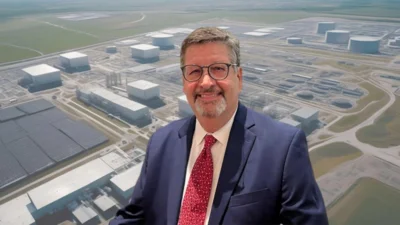The Federal Energy Regulatory Commission (FERC) has enacted a new rule that mandates states to accommodate transmission needs stemming from the proliferation of renewable energy in the resource mix. The rule includes "requirements addressing how transmission providers must conduct long-term planning for regional transmission."
The FERC, an independent agency, is responsible for regulating the interstate transmission of natural gas, oil, and electricity. Additionally, it oversees natural gas and hydropower projects. Governed by up to five commissioners, its current chairman is Willie L. Phillips.
This new rule's adoption coincides with a period where renewable generation is straining grid capacities. In Texas, renewables account for 38% of the generation capacity - a significant rise from 25% in just half a decade.
The surge in renewables has sparked concerns about the electric grid's reliability and affordability. Bill Peacock, policy director for the Energy Alliance, suggests that "Texas electricity prices will continue to increase unless Texans push their elected officials to stop subsidizing renewable energy. Absent that, renewables are going to take over the Texas grid and make electric grids in states like California look reliable and affordable by comparison."
A recent report from the Center of the American Experiment sheds light on why an increase in renewables is pushing up electricity costs. The report indicates that attempts to augment renewable generation "ignore virtually all of the hidden real-world costs associated with building and operating wind turbines and solar panels while also keeping the grid reliable." The study finds that constructing new wind generation in Minnesota is ten times costlier than existing natural gas generation and solar energy is seventeen times more expensive.
Energy expert Robert Bryce has examined the impact of renewables on the grid and concluded that efforts to modify the grid to address renewables' challenges will not succeed. In his research on this topic, Bryce asserts: "These facts indicate that the 'energy transition' to a grid mainly powered by far-flung wind and solar projects will not happen." He argues against investing hundreds of billions of dollars in constructing a grid designed to accommodate low power density, weather-dependent renewables like wind and solar. Instead, Bryce advocates for the development of high-power-density, weather-resilient generation that can utilize our existing grid.





